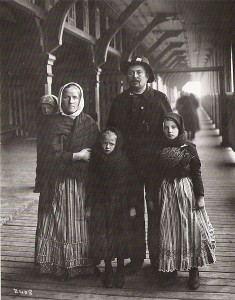In Texas some necks are red. Some necks are German. And a select few necks are both. While my experience with German-Americans is limited, I am married to one and so feel entitled to make sweeping generalizations. The chief of which is that German-Americans are the practical, hardworking sort of folk that know a spade from a shovel.
Having originated from Middle America (or Germany itself) and transmogrified in the hill country of Texas, these mythic German settlers have become a sort of super redneck. Let’s just say that if Crawford Texas was a wee bit further south and west (that is to say a wee more German) then George W. would have figured out a way to increase military spending, bring world peace, cut taxes and balance the budget all while discovering a better-adapted wine grape, and all in his first term.
But alas, these super rednecks of German heritage (let’s call them ROGHs) prefer a behind the scenes sort of benevolence, and so few have heard of them.
But these ROGHs brought the people of Texas more intensive and diversified farming practices, cultural refinements such as the piano, several quality newspapers, a distaste for slavery, a preference for hard and precise work, zydeco music, good beer, written language, fire and the wheel (well, those last three might have already been here). They were the forerunners of Texas’ modern day hill country rippie (redneck-hippie) and Austin’s non-sweetened-tea-swilling, liberal Dixie-Chick-loving Democrat.
While both of these groups have their flaws and neither completely embody the robust German Texan heritage that birthed them, there are still a few purebred ROGHs never-you-minding about their business and continuing to render Texas a simultaneously more profitable and sustainable place to live and raise future generations.
So the next time you pass by Schlitterbahn on the way to the beach or tip back a Shiner Bock take a moment to salute the illusive yet indispensable Texas super-redneck, the ROGHs still living among us.
